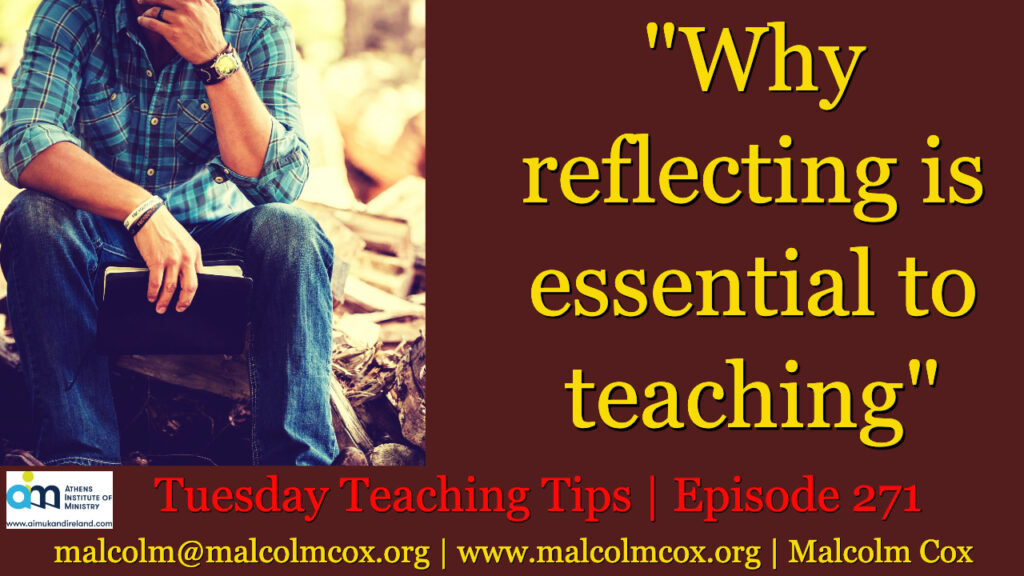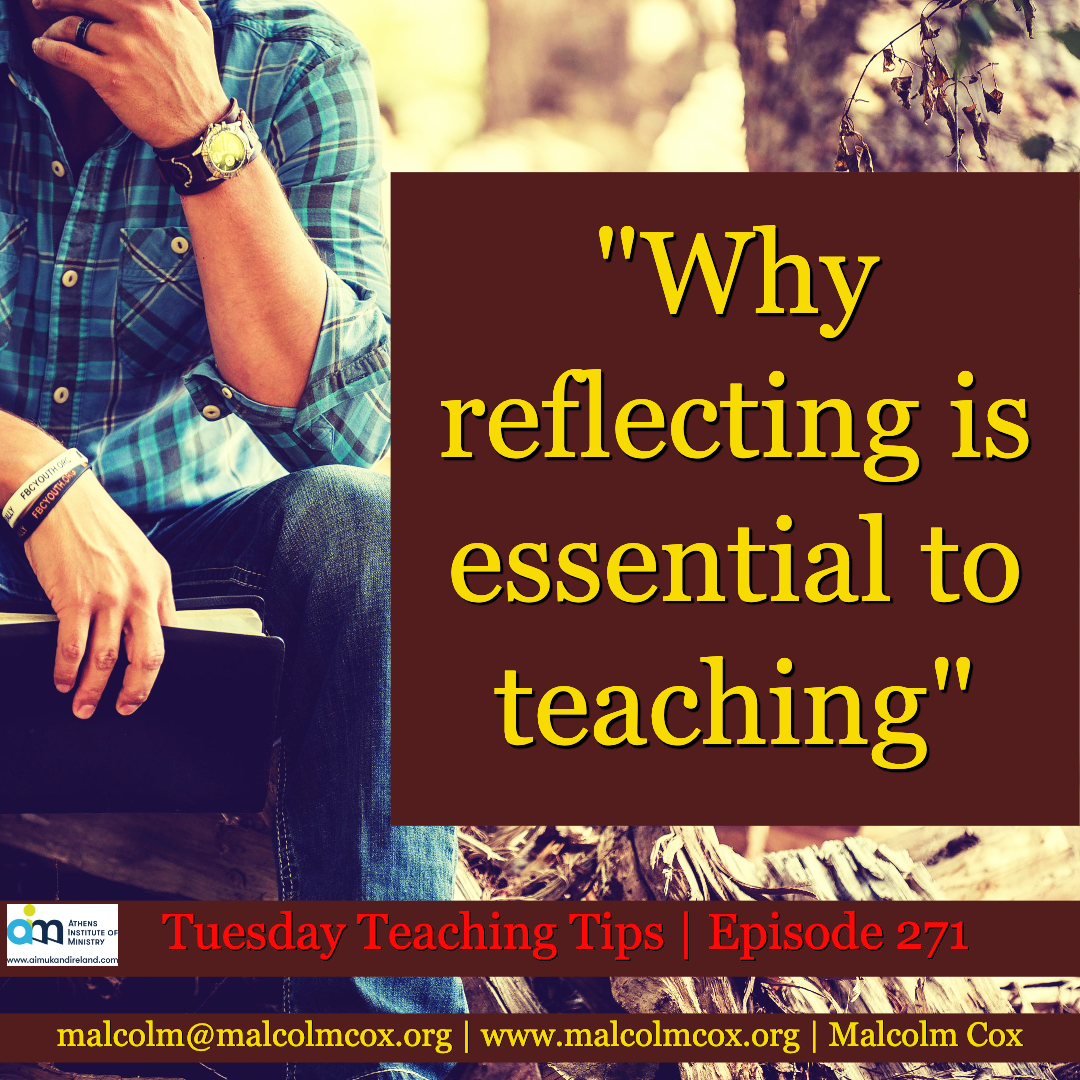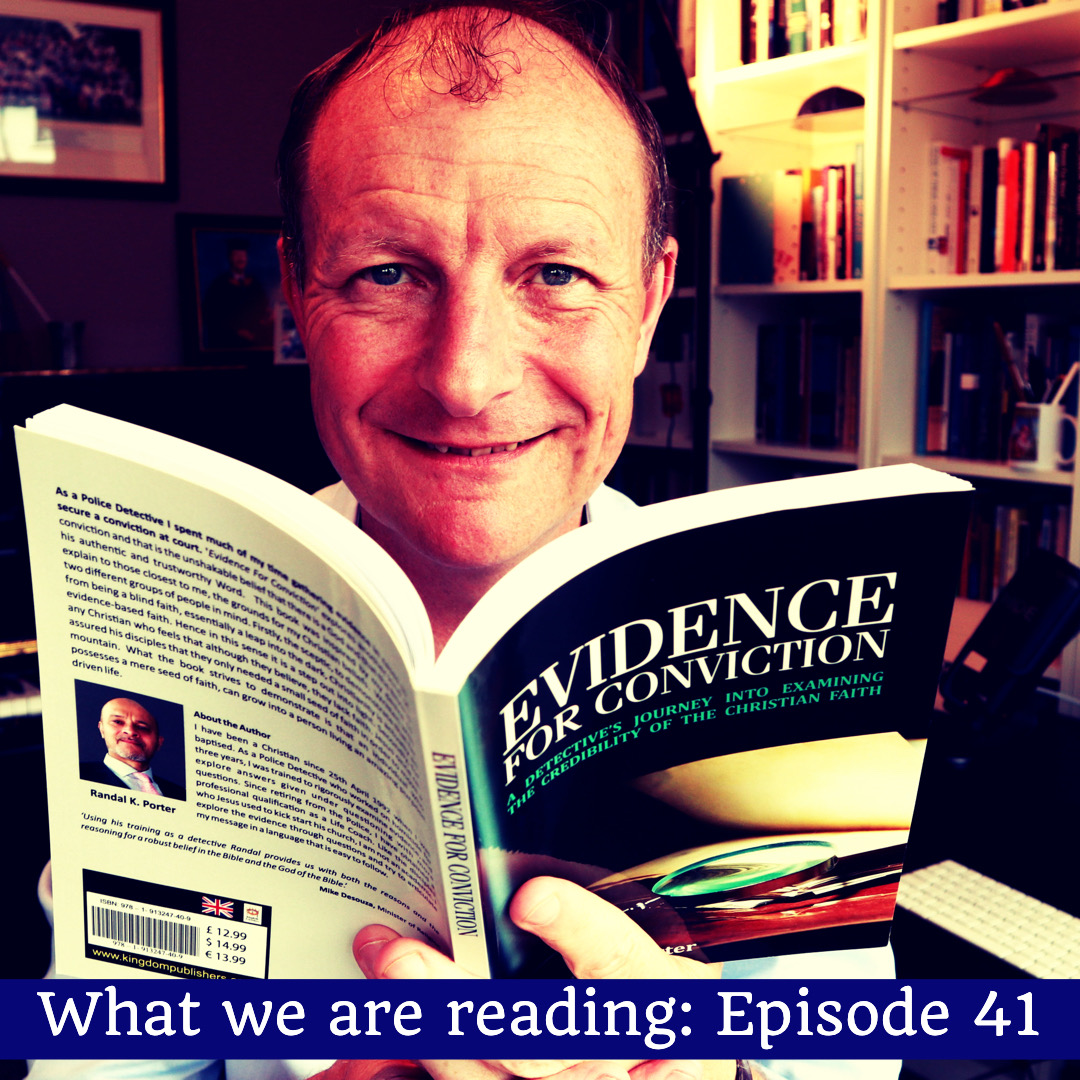Tuesday Teaching Tips | Episode 271

This coming Sunday I am preaching on John 9. The man born blind. Part of my prayer this morning was asking God to show me the meaning of this passage for my own life so that I can live it this week before preaching it on Sunday.
Reflecting on a passage is part of preparation. Certainly, there is a place to pull apart the text, to analyse, to exegete and to research content and context. However, another essential and in my experience neglected aspect of preparation is reflection.
In her book “Your MA in theology”, Zoe Bennett comments, “[reflection] takes time and demands attention to what is new to us, rather than a quick jumping to conclusions or hurrying on so fast we miss things.”
Is this what was happening when Paul warned Timothy about those teaching false doctrines? “They want to be teachers of the law, but they do not know what they are talking about or what they so confidently affirm.” (1 Timothy 1:7 NIV11)
The word translated “know” (novo – GK) is elsewhere translated “reflect”. They have ideas, but their conclusions are so much “meaningless talk” (v6).
That same word is translated “understand” in the following passage: ““When you see ‘the abomination that causes desolation’ standing where it does not belong—let the reader understand—then let those who are in Judea flee to the mountains.” (Mark 13:14 NIV11)
Jesus urges us to reflect on what he said in order to grasp the meaning of his instruction. The two people reflecting on their experience on the road to Emmaus (Luke 24:32), and Peter reflecting on his experience with Cornelius and the Holy Spirit (Acts 11:16) are further examples of the value of reflecting on teaching and experience.
Returning to Zoe Bennett, she adds: “A former colleague of mine, Brother Patrick Moore, used to say, ‘teaching is the overflow of contemplation’.” This is correct. Certainly we must study a text, but if it has not touched us personally, it is simply a transference of information rather than a life-altering teaching opportunity.
As Paul said to Timothy, “Reflect on what I am saying, for the Lord will give you insight into all this.” (2 Timothy 2:7 NIV11) We teach better when we reflect on what we are teaching. Here are three tips for better teaching reflection. After studying a passage:
1. Pray through the passage
2. Ask God to reveal to you the way in which a key theme of the text can be lived by you this week
3. Pay attention to what God reveals, put it into practice and take note of how it effects you. Add the subsequent experience into your lesson as appropriate
Please add your comments on this week’s topic. We learn best when we learn in community.
Do you have a question about teaching the Bible? Is it theological, technical, practical? Send me your questions or suggestions. Here’s the email: [malcolm@malcolmcox.org](mailto:malcolm@malcolmcox.org).
If you’d like a copy of my free eBook on spiritual disciplines, “How God grows His people”, sign up at my website: http://[www.malcolmcox.org](http://www.malcolmcox.org/).
Please pass the link on, subscribe, leave a review.
“Worship the LORD with gladness; come before him with joyful songs.” (Psalms 100:2 NIV11)
Keep calm and carry on teaching
God bless, Malcolm



